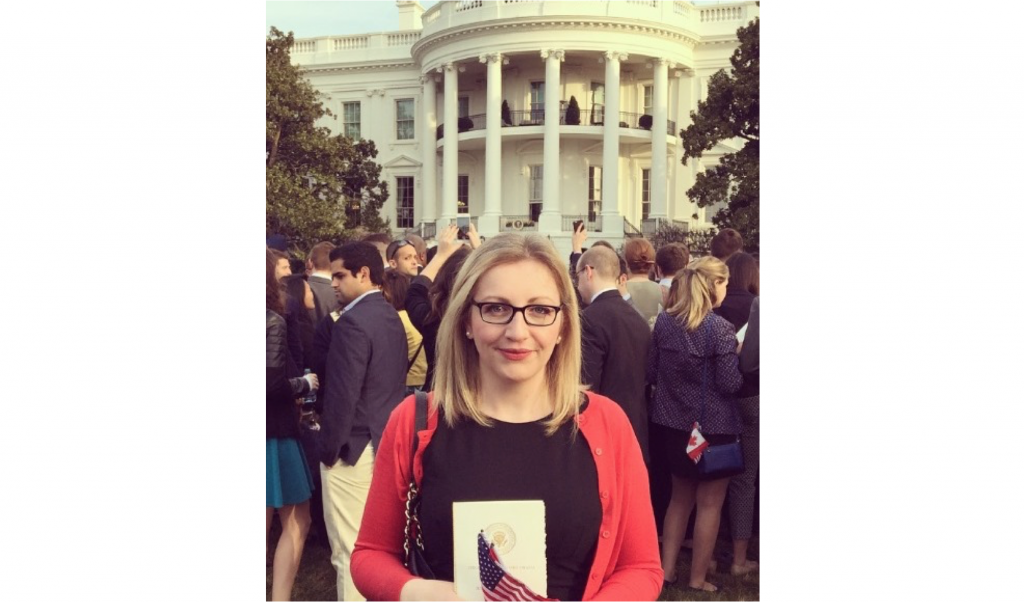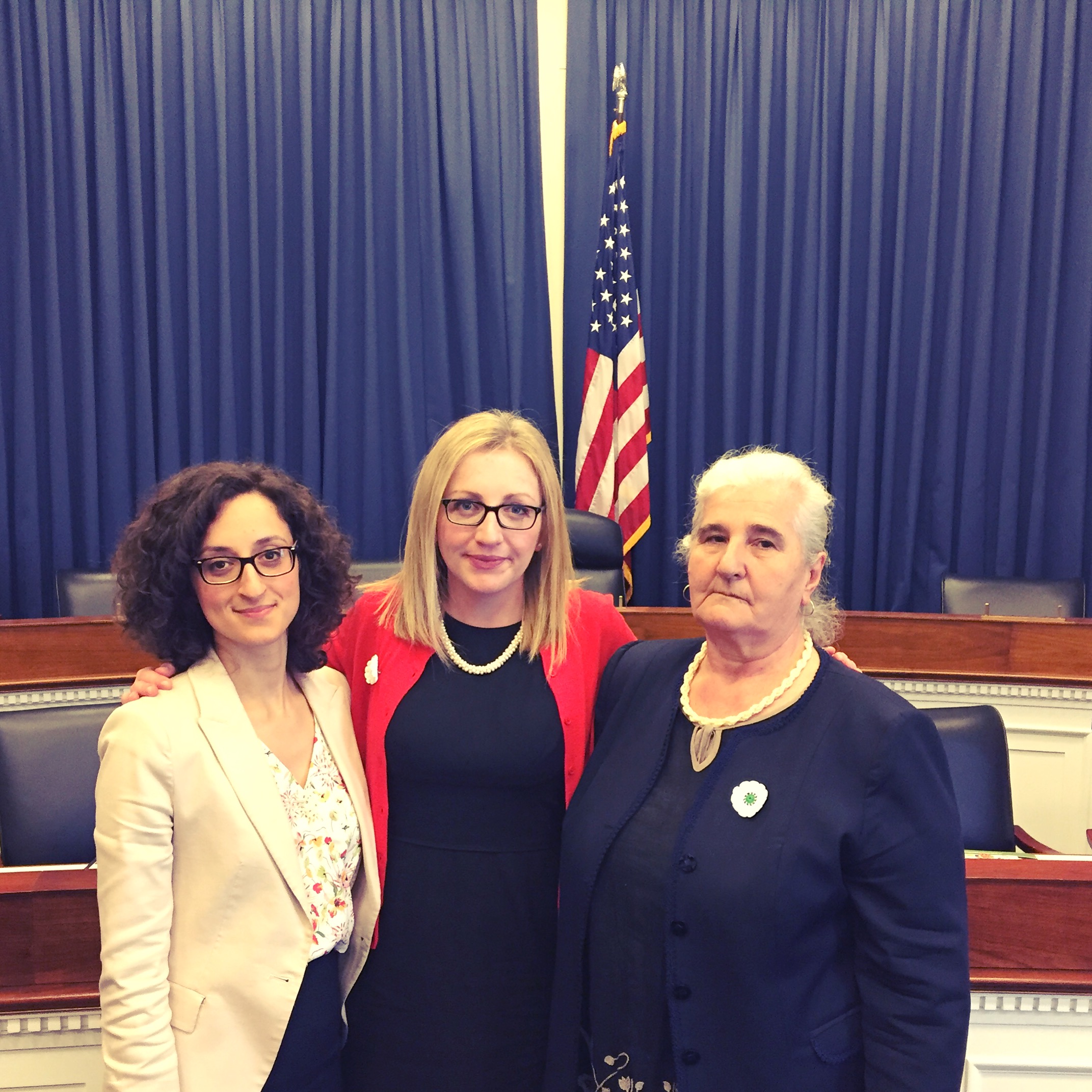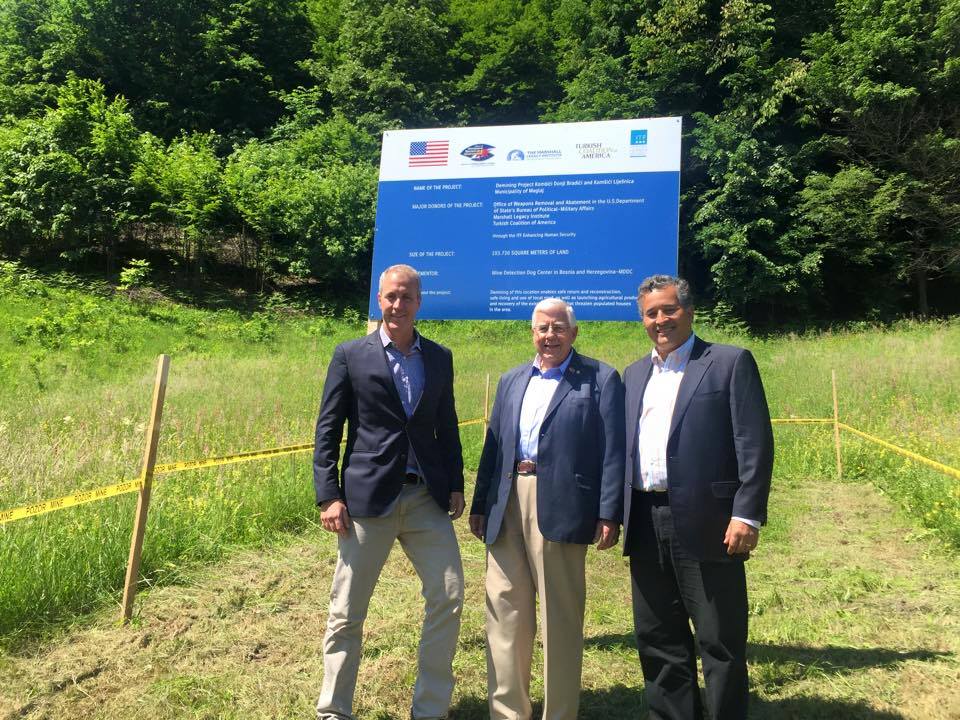
[:bs] Ajla Delkić: glas Bosanaca u SAD-u [:en] Ajla Delkić: Bosnian voice in the US
The Bosnian American community numbers over 250,000 and the remittances that the diaspora sends account for well over 10% of Bosnia’s GDP. This community has now gathered around a unique non-profit organization whose primary goals are to advocate on behalf of Bosnian Americans and to advance Bosnia and Herzegovina’s EU and NATO integration.
The Bosnian American community numbers over 250,000 and the remittances that the diaspora sends account for well over 10% of Bosnia’s GDP. This community has now gathered around a unique non-profit organization whose primary goals are to advocate on behalf of Bosnian Americans and to advance Bosnia and Herzegovina’s EU and NATO integration.
The Advisory Council for Bosnia and Herzegovina (ACBH) has been operating in the United States since 2006 with the aim of advancing the interests of the Bosnian American community and improving relations between the U.S. and Bosnia and Herzegovina (BiH). Balkan Diskurs spoke to Ajla Delkić, ACBH’s Executive Director, about the organization’s work and its ongoing projects.
“In 2006, a small group of Bosnian Americans decided it was time to give the Bosnian American diaspora in Washington, DC a voice. They believed that the diaspora had a responsibility not only towards their homeland but also to advance the interests of those Bosnians living in the United States. Since its inception, ACBH has been instrumental in making sure that important legislation has been passed, harmful legislation has been curbed and has worked on ensuring that BiH stays relevant and that the historical narrative of BiH is portrayed accurately and without bias,” Ajla explained at the beginning of our interview.
One of the recent developments most relevant to ACBH’s work was the new resolution on Srebrenica that marked 20 years since the genocide occurred. The resolution was introduced in U.S. Congress in June of last year and unanimously passed in the U.S. House of Representatives. In a press release issued by the U.S. Helsinki Commission, Congressman Chris Smith stated that “the thousands of innocents who were brutally slaughtered in Srebrenica deserve our remembrance of the tragedy for what it was: genocide. The international community must ensure the perpetrators are held accountable for their actions, and study the lessons of Srebrenica with the aim of preventing future atrocities.”

ACBH has not only campaigned to make sure that relevant legislation is being passed, it has also had to counter resolutions that were detrimental to BiH and the Southeast Europe region.
“There was a resolution being pushed by the Croatian American lobby in the U.S. Senate a few years ago, and now the same resolution is being pushed in the U.S. House of Representatives. In short, it states that the U.S. Congress should send a special envoy to BiH that would assess the situation and report back to the President of the United States within one year. Although this resolution offers some valid points and suggestions, it is more harmful than good as it would essentially take away voting rights from people in BiH by ensuring that individuals would only be able to vote for politicians that are of the same ethnic background as them, which is undoubtedly undemocratic,” Ajla explained.
She named the Congressional trip to Sarajevo and Maglaj in June of last year as one of the most recent activities of ACBH in BiH. “After the catastrophic floods in 2014, ACBH wanted to help and we were thus able to secure a $100,000 grant which was kindly matched by the U.S. Department of State meaning that $200,000 went directly towards demining efforts in BiH. We then traveled to Maglaj with a Congressional delegation to see the area that had been demined.”
“This was our third Congressional delegation to BiH and, as usual, ACBH stressed on meeting with the civil society, local NGOs and policymakers so that the members of the U.S. Congress and their senior staff could get a better sense of the overall situation in BiH. ACBH ensures that all of our delegation trips are well rounded and, by also meeting with the civil society sector, U.S. policymakers receive a broader perspective and can hear directly from the grassroots level about the current state of the communities and challenges they face every day.”

In terms of ACBH’s relations with BiH’s political elite, Ajla stated that most of them are either not acquainted with ACBH’s work or perhaps not as keen to cooperate. ‘’U.S. politicians have to answer to their constituents, and are thus very eager to work with their respective communities to find common ground. ACBH’s close relationship with the Bosnian American communities more or less equals untapped potential. The Bosnian American community represents a large voting body and, as dual citizens of BiH and the U.S., we can vote in both countries. While most of us do not live in BiH full time, the remittances that the diaspora sends account for more than 10% of Bosnia’s GDP which means that the diaspora equals money and votes. Any savvy politician in BiH should be able to discern the value in that.”
Numbering over 250,000 people with dual citizenship, the Bosnian American community has a great voting potential. Unfortunately, the current voting system makes it difficult for the Bosnian American diaspora to exercise their voting rights. Ajla recalls: “One of ACBH’s board members received her voting ballot after the election and that was sadly the case for a lot of people living in the U.S., which is just unacceptable.”
“I encourage BiH’s politicians to visit Washington, DC more often and to also invite U.S. Members of Congress to visit BiH. These types of exchanges go a long way in strengthening the relationship between the two countries. While ACBH was instrumental in forming the Congressional Bosnia Caucus and is responsible for forming and nurturing the relationships with members of U.S. Congress and on educating them about BiH, it would be beneficial if BiH’s politicians saw the value in this and were open to more collaboration,” she explained.
Last year marked the 20th anniversary of the signing of the Dayton Peace Agreement, which put an end to the war in BiH. However, today the accord is considered outdated, and many reforms are needed.
Ajla agreed: “The Dayton Peace Agreement, while less than perfect, did put an end to the war, and in that sense, it was successful. With that said, it is widely understood that the Dayton agreement was never meant to make BiH into a functional country – it was meant to end a war and purposefully left room for improvement. While there are tools that can be used to ensure that BiH makes progress, Dayton has also provided greedy politicians with the space to flourish and thus has evolved into allowing for a less than ideal situation in BiH.”
Besides politics, media is another area of BiH’s society that Ajla finds problematic: “BiH needs more independent media outlets and more needs to be done to increase freedom of the media as well. In addition, the media itself needs to be based on professionalism and should strive to portray the news with the utmost accuracy and should be devoid of vulgar rhetoric.”
ACBH puts great trust and responsibility on the BiH youth by providing them with scholarships to pursue internships in the U.S. Congress. “In past years we’ve seen a surge in young Bosnian Americans who are really interested in bringing a change to BiH, and as an organization we just want to provide them with the necessary tools to learn about how the U.S. political process works and engage them in the democratic process, but also ensure that they are adequately familiar with the state of affairs in BiH so that they can more effectively affect positive change.”
She concluded our interview with a simple message: “I think there is a lot of hope for BiH, and the Bosnian American diaspora does want to engage and is still interested in positively contributing to our homeland. However, democracy is not a spectator sport. It requires active participation of the citizens and I hope to see all citizens of BiH exercise their right to vote come the next election and to hold those they elect accountable. ACBH will continue to combat genocide denial and the revision of history as well as engage U.S. and BiH policymakers in striving to bring about progress to BiH and its citizens.”





